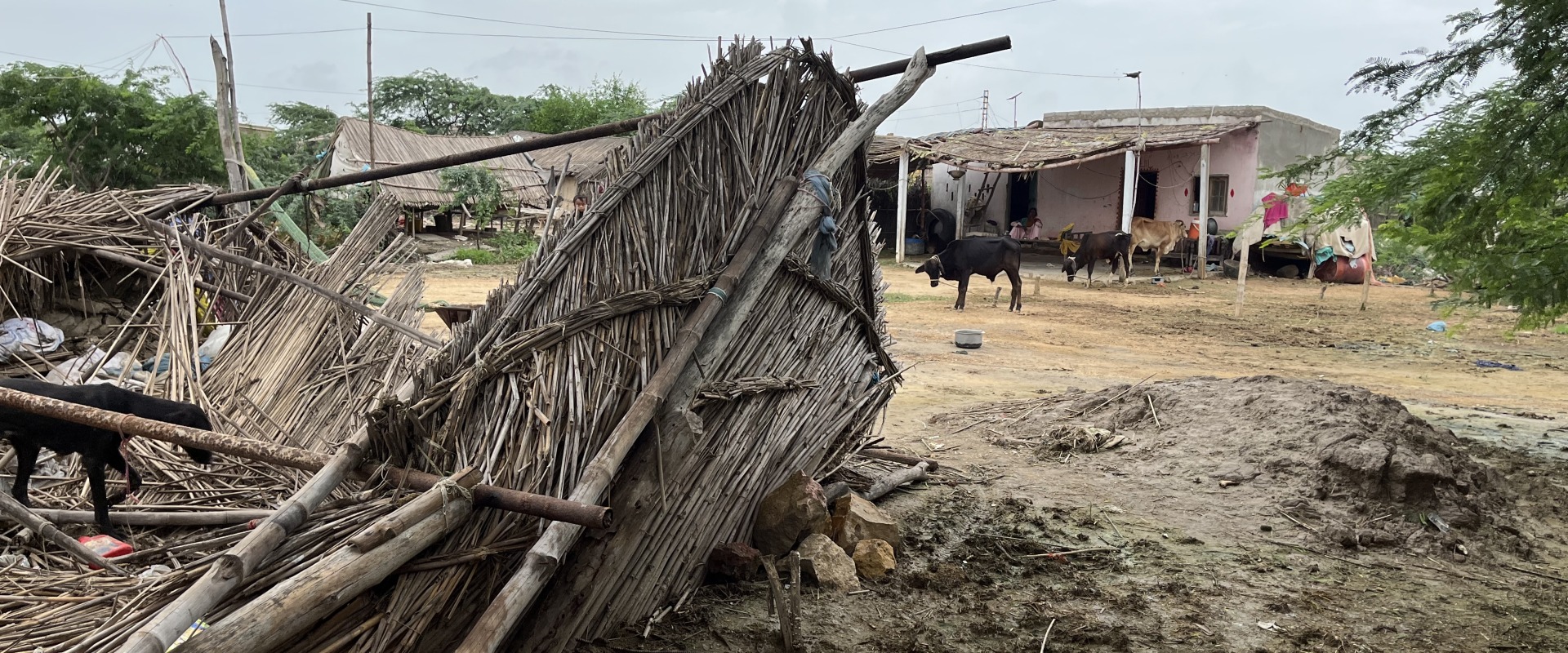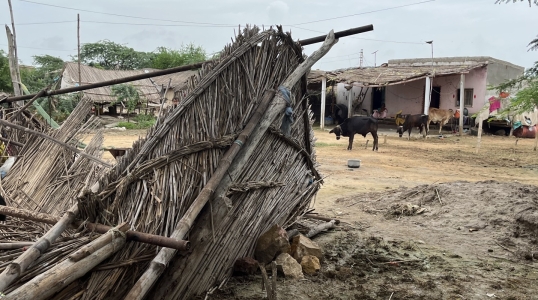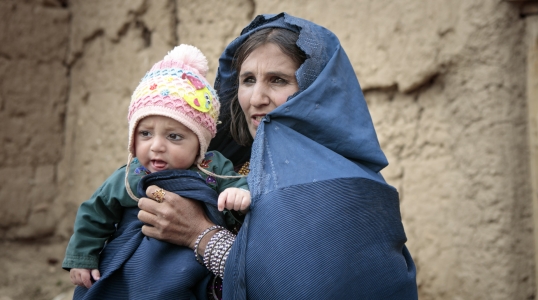
GIVE THIS RAMADAN

With 33 million people in Pakistan reeling from the worst monsoon rains in recorded history, we are accelerating our response efforts. Severe flooding has left 6.4 million people in need of humanitarian aid and more than 421,000 displaced.
As part of its immediate response effort, Action Against Hunger is working to address immediate needs for nutrition, water, sanitation, and hygiene (WASH), as well as overall health and mental health support for those affected. We are also distributing more than 150 latrine construction kits in camps for displaced people to prevent outbreaks of disease in a region regularly affected by cholera epidemics.
“The devastating effects of this year’s monsoon are far from over and many areas remain inaccessible, raising fears of a much higher death toll and rising humanitarian needs in the coming days,” warned Jennifer Ankrom-Khan, Action Against Hunger’s Country Director in Pakistan. Her team is actively assessing the crisis and working to ensure no one is overlooked.
Action Against Hunger is focusing on the provinces of Sindh and Balochistan, which have seen five times the average monsoon rainfall. This exceptional monsoon follows a particularly severe drought that has sped the melting of glaciers and created runoff on dried-out soils. In the Badin district of Sindh:
In addition, our response plans will address the large refugee population of Balochistan, who may be particularly vulnerable.
More than 719,000 livestock have died and approximately five million acres of crops and orchards have been devastated by the floods, which could lead to rising hunger. Action Against Hunger is working to safeguard livestock, a key asset and source of livelihoods.

“Before this emergency, 27 million people in Pakistan were already food insecure. Now, there is a real risk of long-term impacts on food supplies in a country already affected by a major economic crisis caused by the indirect effects of the COVID-19 pandemic and the war in Ukraine,” said Ankrom-Khan.
This is not the only natural disaster that families in Pakistan have experienced in recent years. Drought, heatwaves, earthquakes, and extreme winter temperatures have left people in the same communities even more vulnerable to this latest emergency.
“While national efforts are underway to support those affected by the rains and floods, international solidarity is crucial to adequately address immediate needs. More funds need to be allocated to the humanitarian response,” explained Jennifer Ankrom-Khan.
The United Nations has launched an appeal for donations, but of the approximately $160 million needed for response efforts, only $10 million has been allocated so far.
Action Against Hunger has worked in Pakistan since 1979, effectively delivering development and humanitarian assistance in the hard-to-reach and under-served areas of Sindh, KP, and Balochistan, helping more than 2.2 million people in 2021 alone.



Join our community of supporters passionate about ending world hunger.